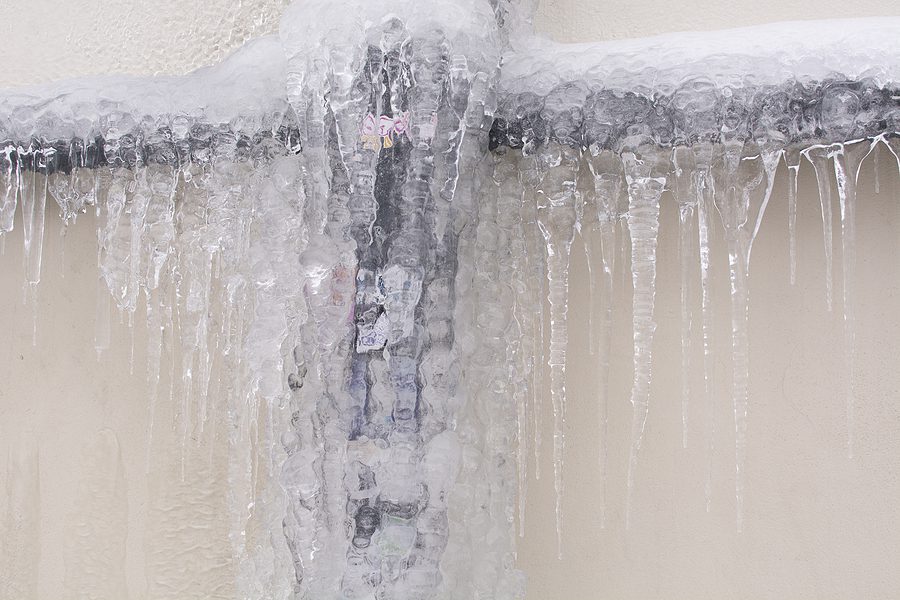
When winter comes blowing in, it’s important that you know how to keep your pipes from freezing. Pipes can be susceptible to frozen water if outside temperatures fall rapidly, if there is poor insulation, or if the thermostat is simply turned too low.
The water has volume and exerts pressure from within the pipe. One or two small cracks can result in a pipe bursting, or other catastrophic and expensive damage.
This guide offers suggestions for preventing frozen pipes. Discover your options if your pipes are completely frozen or if a bit of ice formed in your water lines. Also, advice on thawing frozen pipes.
When learning how to keep pipes from freezing there are a number of measures that can be taken:
- Even if your area does not typically experience severe freezes, use pipe insulator on pipes in the attic and crawl space. Another option is to cover pipes with heat tape or heat cables that are controlled by a thermostat. Which is best for you, depends on your home. Always follow manufacturer installation instructions.
- Seal or caulk any cracks that might let in cold air, especially areas where pipes run from inside the house to outside, like dryer vents or water pipes.
- Pipe freezing prevention should also occur outdoors. As part of your winterizing routine, remove all the hoses from your home.
- Cut-off valves, where installed, should be closed and all outdoor faucets drained. Faucet covers can also help to keep them safe during the winter season.
- Maintain water flow within your water system. When winter seems to be upon us and the temperatures are dropping, begin a small faucet drip. Continue this drip in kitchen, bath and laundry room sinks, and any other faucets throughout the house.
- If you’ll be gone for more than a few days, alert a friend or neighbor you trust. Have them periodically verify that your precautions against frozen pipes were successful and that nothing has burst.
- Turn on the water tap. If the flow of water is just a drip or trickle, your pipe might be frozen.
- Inspect along the water supply lines and note any areas that are extremely cold to the touch. Look closely and tell me if you can see any line breaks.
In cases you discover any broken pipes, shut the main water off to the house. Do not delay in contacting a reputable plumber to fix the issue.
Sometimes before you can figure out how to prevent pipes from freezing, your plumbing ices up.
Frozen pipes should be thawed swiftly and also safely. A few suggestions for thawing exposed pipe and enclosed pipe follow. For either type of pipe, turn on the faucet at the affected pipe. It will also help more rapid melting of the ice, as water flow.
For exposed pipes, place a heat source around the pipe to melt the ice. This can occur in various ways:
- Place a heating pad around the pipe and turn the heat up to high.
- Point a blow dryer on high at the pipe. Keep the air moving forward and back and around the pipe in 12” – 16” sections at a time.
- Wrap heated, moist towels around the pipe. Replace these wraps regularly as they lose heat to the pipe.
- Use a space heater to direct warm air flow onto a local section of the pipe. Relocate the heat source as necessary, repeating until the pipes are thawed and water pressure returns to normal.
- For pipes in an enclosed wall or in other difficult spaces, consider:
- Heat up your home. The warmer temperatures may aid in thawing any pipes that may be located within the walls.
- Cut into the wall to expose the pipe if necessary. For exposed pipes, any of the above procedures can be applied.
Tip: Never attempt to thaw a pipe using extreme heat or open flames like heat gun or a blow torch. This also creates a fire hazard and can lead to severe damage to the pipe.
Knowing how to prevent pipes from freezing can save a lot of headache and expense. The easiest one of these is to insulate exposed pipes with quality insulating wrap. A great tip to help avoid frozen pipes is to let the faucet drip slowly when the temp drops.

